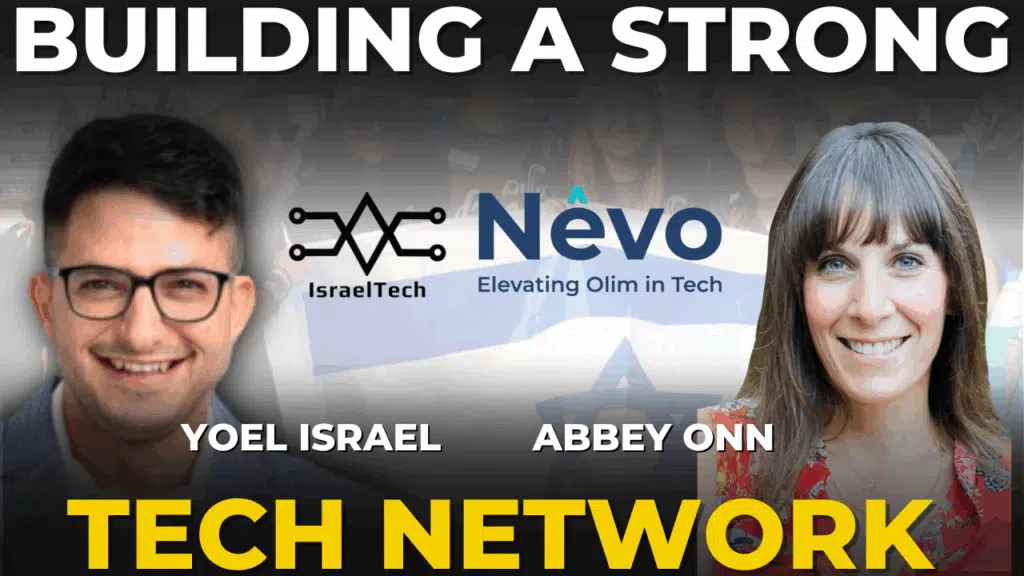The Challenge of Staying in Israel
Aliyah is often described as a dream fulfilled, but for many immigrants the reality is far more complex. A staggering one in three English-speaking Olim leave Israel within three years of arrival. The reasons vary,family obligations, further education, or struggles adjusting to a new culture,but Abbey Onn, Executive Director of Nevo Network, believes that the biggest factor is professional.
“You don’t come to Israel saying, ‘I’m going to make Aliyah, but I’m planning for an MBA at Stanford,’” Abbey explained. “Most who leave early do so because they can’t find their place professionally.”
Abbey’s perspective comes not only from her own story as an Olah but also from years of research, community-building, and trial and error in creating programs that address this exact issue.
From Attraction to Retention
In 2020, Abbey joined forces with investor Michael Eisenberg to think about what comes after the initial excitement of Aliyah. Programs like Birthright or Nefesh B’Nefesh do a remarkable job of attracting new immigrants. But what about keeping them here?
Abbey quickly realized that while Israel has invested heavily in bringing people over, little was being done to ensure they stayed. “I found that one in three Olim were leaving,” she said. “I didn’t want to focus on attraction anymore. I wanted to focus on retention.”
That decision gave birth to Nevo Network, an organization dedicated to helping immigrants build professional networks and, just as importantly, a sense of belonging in Israel.
What Nevo Offers
Nevo runs a ten-month fellowship for high-potential immigrants who have already lived in Israel for at least two years. By that point, they’ve survived the bureaucracy, wrestled with Hebrew, and experienced the frustrations of daily life in a new country. Abbey calls this the “growth stage.”
Each year, around thirty fellows join a cohort. They represent diverse backgrounds, industries, and nationalities, but they share a common challenge: finding a way to grow professionally and socially in Israel.
The program equips fellows with tools to advance their careers, but it’s not just about individual success. “We want them to be multipliers of impact,” Abbey said. “If we invest deeply in 150 people, they will influence thousands.”
That vision has proven true. Today, Nevo fellows have advised and mentored over a thousand new immigrants, hosted events for hundreds more, and created initiatives that extend far beyond the original scope of the program.
The Power of Community in Crisis
The strength of Nevo was tested in October 2023 when war broke out in Israel. Abbey herself was personally affected,her extended family on Kibbutz Nir Oz was among those attacked and taken hostage. At the same time, her co-director’s husband was called up for extended military service, leaving the organization’s staff stretched thin.
But Nevo’s community rose to the challenge. Fellows and alumni quickly organized themselves into supply chains for soldiers, international media briefings, and support systems for hostage families. They raised nearly half a million dollars, delivered critical gear to bases across the country, and created new ways for English-speaking immigrants to contribute.
“They didn’t need staff or leadership,” Abbey recalled. “They needed each other. People said they felt like they made a second Aliyah during the war because, for the first time, they felt they could serve the country in a meaningful way.”
Integration, Not Isolation
One of Abbey’s recurring messages is that immigrants can’t afford to live in bubbles. “We can’t only be for ourselves,” she explained. “We have to be part of the larger country that we’ve chosen to join.”
That means not just building an immigrant-only network, but actively connecting with Israelis. Nevo encourages fellows to bridge those gaps, positioning Olim as contributors to Israel’s tech ecosystem rather than outsiders struggling to break in.
This approach also helps counter one of the main risks Abbey identified early on: when Olim do return home, they often describe their experience negatively, framing Israel as a place where they couldn’t succeed. But if they are able to thrive, even if they eventually leave for family or education reasons, they become powerful ambassadors for Israeli tech and society.
Abbey’s Personal Journey
Abbey’s passion for helping immigrants stems from her own struggle. After a successful career in the United States, including a leadership role at Harvard Kennedy School, she moved to Israel a decade ago with her husband and two children.
While her Israeli-born husband never once had to look for a job, recruiters found him thanks to his background, Hebrew fluency, and army service, Abbey had to start from scratch. She lived in Herzliya, far from Anglo enclaves, and spent years piecing together work opportunities while raising her young family.
That experience gave her empathy for other immigrants facing the same uphill climb. “I wanted a network to find me,” she admitted. “When it didn’t, I decided to build one.”
Beyond the Fellowship
Although the fellowship is Nevo’s flagship program, its impact extends far beyond the 30-person cohort. Every graduate joins a database that new Olim can access. Need a connection at a company? Looking for someone who speaks your language? Want advice on breaking into a field? That network is open, and it grows stronger with each new fellow.
In addition, Nevo runs events, webinars, and partnerships with other organizations such as Nefesh B’Nefesh, Masa, and Israel Tech Challenge. This collaborative approach ensures that immigrants are supported at every stage, from initial arrival to long-term professional success.
Stories of Scale
The impact of Nevo is best seen through stories. Two fellows, for example, realized during the Ukraine war that thousands of Russian-speaking immigrants would be arriving in Israel. They quickly pivoted from building a small professional network to launching “Reboot Startup Israel,” which helped over 15,000 Russian speakers integrate into tech. A similar initiative now serves Spanish-speaking Olim.
Other fellows spearheaded logistics networks during wartime or helped shape international messaging campaigns. In each case, the investment in a few individuals multiplied into change for thousands.
Building Belonging
At the heart of Abbey’s vision is the idea that belonging is not a luxury, it’s essential. For immigrants, a sense of belonging ranks as high as food, water, or shelter in determining whether they will stay. Without it, professional success and personal resilience become nearly impossible.
“Israel is built on immigrants,” Abbey reminded. “If we don’t get and keep global talent, we don’t fulfill our potential as a country.”
Looking Ahead
Nevo’s plans for the future include expanding to webinars, deepening partnerships with Israeli companies, and continuing to elevate Olim as leaders in the tech ecosystem. With each new cohort, the network grows stronger, more diverse, and more capable of meeting challenges head-on.
For Abbey, the work is personal, communal, and deeply tied to Israel’s future. “Our goal,” she said, “is that anyone coming to Israel knows there’s someone waiting for them, ready to help them feel at home.”
Interested in more insights about Israeli startups expanding globally? Follow IsraelTech for exclusive interviews, deep dives, and expert perspectives.
IsraelTech is proud to partner with Deel, the global all-in-one HR and payroll platform for teams in 150+ countries. For more information, visit Deel.com/israeltech




